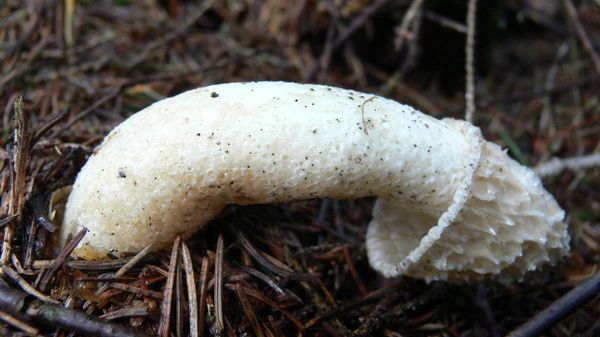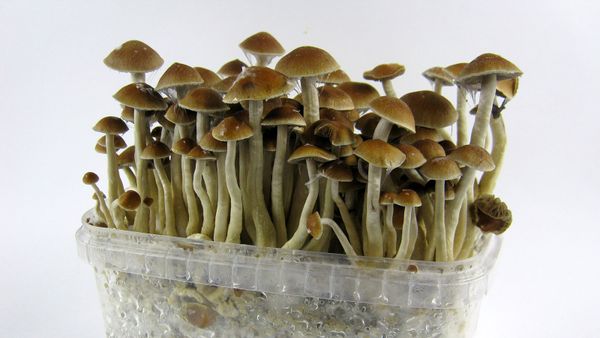
Dying can be hard on the environment. If you're buried, you're going to be pumped full of a few gallons of toxic embalming fluid, which will soon leach out of your corpse and then out of your casket, which will most likely be stored for posterity in a cemetery that uses tons of pesticides and astronomical amounts of water to keep it looking nice. If you're cremated, your body will be incinerated in an oven for between three and four hours at temperatures of around 1,800 degrees Fahrenheit (982 degrees Celsius). It takes about 28 gallons of fuel to incinerate a single human body, and the process releases carbon monoxide, soot and even mercury from dental fillings into the air.
Surely a person's dying wish not to leave one last giant boot print on this planet can be achieved.
Advertisement
The green burial industry is booming these days, and there are certainly a lot of people who claim to have a process or product to help dying people pass out of this world with as little environmental impact as possible. But the Coeio Infinity Burial Suit might be one of the most remarkable.
This suit is not only chic, it is made out of organic cotton and seeded with mushroom spores. Not only that, the company claims the mushrooms can decompose our post mortem bodies while cleaning toxins from our bodies before they leach out into the soil.
Although green burials that don't involve embalming fluids like formaldehyde are a step in the right direction toward making the process of dying a little greener, the Infinity Burial Suit promises to use fungi to clean the toxins we walk around with every day.

According to the Centers for Disease Control, the bodies of 21st century people are full of all kinds of toxins — BPA, heavy metals, volatile organic compounds, preservatives, pesticides, the byproducts of disinfectants and so much more. Mushrooms put out enzymes that break down organic material and remediate toxins in the soil — they've even been touted as the answer to cleaning up everything from nuclear meltdowns to oil spills. And the varieties of fungi that can do this aren't fancy or rare — lots of edible varieties like shiitakes and oyster mushrooms are great at cleaning soil.
Jae Rhim Lee, artist and founder of the Infinity Burial Project, has been working to find a hybrid mushroom that can decompose bodies and metabolize toxins, turning corpses into nutrient-rich soil. Using her own hair, nails and skin cells as food for her mushrooms, she developed the best mushroom variety for the job: the Infinity Mushroom. Now you can buy a suit Lee likens to "ninja pajamas" covered in a netting laden with mushroom spores and other elements that help decompose, remediate toxins and deliver nutrients to plant roots.
"For me, cultivating the Infinity Mushroom is more than just scientific experimentation or gardening or raising a pet," Lee said in her 2011 TED talk about the Infinity Burial Project. "It's a step toward accepting the fact that someday I will die and decay. It's also a step toward taking responsibility for my own burden on the planet."
This story is a part of Covering Climate Now's week of coverage focused on Climate Solutions, to mark the 50th anniversary of Earth Day. Covering Climate Now is a global journalism collaboration committed to strengthening coverage of the climate story.
Advertisement

